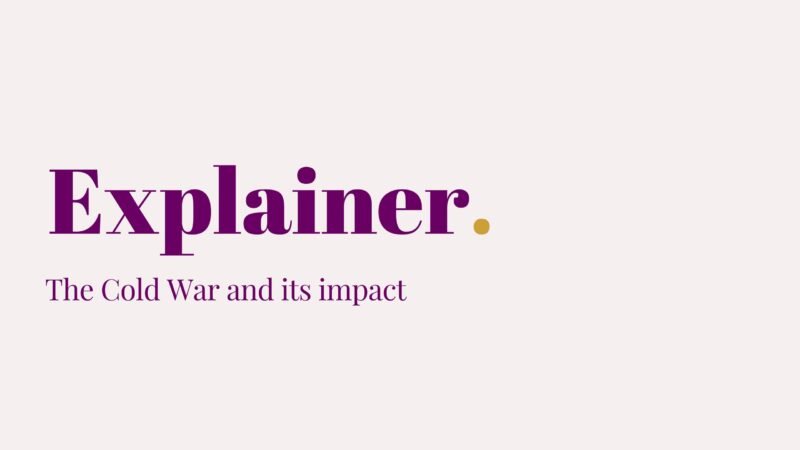Explainer: The Cold War and its impact

The Cold War was a state of political and military tension between the Western Bloc (led by the United States and its NATO allies) and the Eastern Bloc (led by the Soviet Union and its allies in the Warsaw Pact) after World War II. It lasted from the late 1940s to the early 1990s and was characterized by a lack of direct military action, but instead by political, economic, and military rivalry, propaganda, and espionage.
The root causes of the Cold War can be traced back to the differences in the ideologies and political systems of the two superpowers. The United States represented capitalism, democracy, and freedom, while the Soviet Union represented communism and authoritarianism. These differences led to a struggle for global influence and a desire to spread their respective ideologies.
One of the key events of the Cold War was the Marshall Plan, in which the United States offered economic assistance to Western European countries to rebuild after World War II. This plan was seen as a direct challenge to Soviet influence in Europe and resulted in the Soviet Union establishing its own economic system in Eastern Europe, known as the Comecon.
Another significant event of the Cold War was the Cuban Missile Crisis of 1962, when the Soviet Union placed nuclear missiles in Cuba, just 90 miles from the United States. This led to a tense standoff between the two superpowers, bringing the world closer to the brink of nuclear war than ever before. Eventually, a compromise was reached and the missiles were removed.
Throughout the Cold War, both sides engaged in various forms of espionage, propaganda, and psychological warfare, including the use of spy satellites, covert operations, and disinformation campaigns. The United States and the Soviet Union also engaged in an arms race, in which they tried to develop and stockpile more advanced weapons, including nuclear weapons.
The end of the Cold War came in the early 1990s, with the collapse of the Soviet Union and the end of the communist regime in Eastern Europe. The signing of arms control agreements, such as the Strategic Arms Reduction Treaty (START), marked the beginning of a new era of cooperation between the United States and Russia.
Overall, the Cold War had a profound impact on the world, shaping international relations and shaping the world as we know it today. It led to the spread of democracy, capitalism, and freedom, and helped to usher in a new era of cooperation and peace.
Global Impact triggering Civil Wars and Genocides
The Cold War had a profound impact on the world, both politically and economically. It led to the spread of democracy and capitalism in many countries, but it also had negative consequences in some regions of the world.
One of the most significant global impacts of the Cold War was the proliferation of civil wars and genocides in various countries, often fueled by the political and military rivalry of the superpowers. In order to counter Soviet influence, the United States and its allies often supported authoritarian regimes and armed rebel groups, which often led to the suppression of civil rights and the outbreak of civil wars.
For example, in Southeast Asia, the United States became involved in the Vietnam War, which resulted in the deaths of millions of people and the destabilization of the region. In Africa, the Cold War fueled conflicts in Angola, Mozambique, and other countries, as the United States and Soviet Union backed opposing factions in their struggle for power.
In addition, the Cold War also contributed to the rise of genocides in some countries. For example, in Rwanda, ethnic tensions were exacerbated by the Cold War as the superpowers backed different ethnic groups in their struggle for power. This ultimately led to the Rwandan Genocide in 1994, in which an estimated 800,000 people were killed.
It’s important to note that while the Cold War certainly had a significant impact on many of these conflicts, there were also many other factors that contributed to their outbreak, including long-standing ethnic, cultural, and economic tensions, as well as local political and military struggles for power.


















